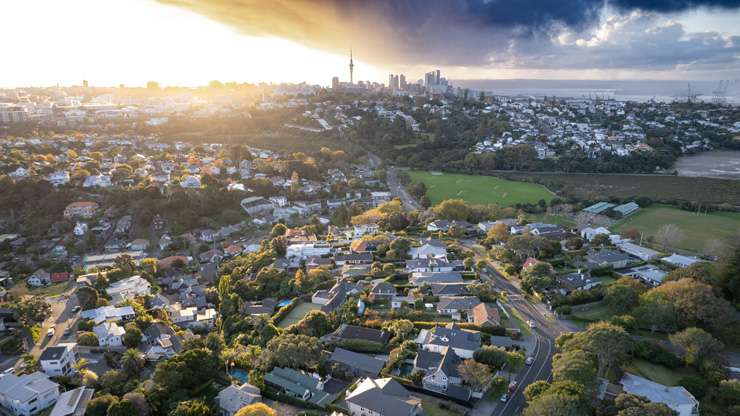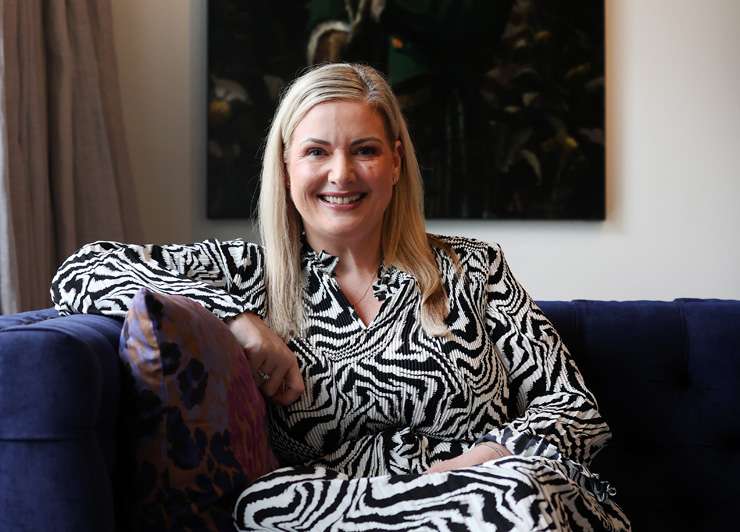Migrants who have recently been granted residency aren’t wasting any time trying to find their own slice of paradise and are already applying for finance and trawling through open homes.
In the last two weeks real estate agents across the country have noticed a significant increase in migrants, who have recently been granted residency, wanting to buy a house.
Immigration New Zealand has so far approved residency visas for 84,000 people under the fast-track 2021 Residency Visa scheme announced last year.
The deadline for applications closed at the end of July and, according to Immigration NZ, so far more than 43,000 of 106,000 visa applications received have been approved.
Start your property search
Under the rules, people who hold a residence visa and who are ordinarily a resident in New Zealand, have been in New Zealand for at least 12 months and have spent at least 183 days of the past 12 months in New Zealand can purchase a house.
Harcourts Mt Roskill co-owner Nick Kochhar has noticed a large upswing in migrants, who have recently got residency, wanting to buy property.
Within six days, he had received 20 enquiries from new migrants wanting mainly new houses.
Another property attracted nine groups through an open home and eight of them had just got residency in the last couple of weeks.
“They are very actively buying now,” he said.
Kochhar said among those looking were Asian families who moved to the country six to seven years ago and were only now able to buy because they had residency.
“They are getting excited because it’s the first step they are going to do. Money is sitting in their account so they are either going to buy the business or buy the house,” he said.
“They already know they are paying a good amount of rent for a four-bedroom / three-bedroom house so better to buy.”

Migrants are shopping for homes in Auckland. Photo / Chris Tarpey
Kochhar said they are mainly interested in new homes priced between $800,000 and $1.1 million because they only need a 10% deposit for a new-build and many migrants didn’t have KiwiSaver to tap into.
“They know they can’t get the old houses because of the 20% deposit so it’s better to get something so we are guiding them that instead of waiting, waiting, waiting and paying off someone else’s mortgage it’s better to get one yourself.”
Since the end of July, Umbrella Group mortgage adviser Sara Hartigan has also seen an increase in migrants with residency visas asking for advice about how they can buy a home.
“They’ve been patiently waiting to get these visas, and now the first-home buyer market has dropped out, I think they’re seizing the opportunity as well. They are doing a really smart thing.”
Hartigan agreed they were mainly looking at new houses because that was often the type of property they were renting and they didn’t want to move from that into an older one.
Buying new also made good financial sense because there is less likely to be unexpected costs, she said.
In the next three months, Hartigan expects to see even more migrants house hunting now that their residency visas have been approved and are heading towards citizenship.
And it’s not just Auckland’s newest residents who are shopping around.
Professionals McDowell Real Estate principal Steve Lovegrove said in the last week, his Rotorua agents have also noticed more migrants than usual, who have recently secured residency, looking at buying houses.
Lodge Real Estate salesperson Blair Pointon last week sold a property near Waikato Hospital in Hamilton to a couple who had just received New Zealand residency.
“Imagine being in a position where you know you are wanting to set up your life here and wanting to buy, but you actually can’t and then all of a sudden you are seeing the housing market go up like crazy - it would be hard if you want to buy and know you can’t do anything about [it]. I think that’s why they’ve seen it come back a bit and [have] gone for gold pretty much.”
Those looking in Hamilton are mainly looking for entry-level properties ranging between $500,000 and $900,000 on larger freehold sections, he said. Hamilton Lake and Melville are popular with hospital workers, many whom are migrants, although they also buy all over the city.

Umbrella Group mortgage adviser Sara Hartigan: “They’ve been patiently waiting to get these visas.” Photo / Fiona Goodall
Immigration adviser Kelly Coetzee said the bulk of the applications were sent in from March 2022 and Immigration NZ appeared to have started processing them from early July.
About 21 of her clients got approval last month which is a lot higher than the previous month. She expects the remaining applications to be approved in the next three to four months, with Immigration NZ advising them that all decisions will be made within 12 months.
“What happens is they are getting their residency now they are all so excited that they can actually buy a house now which is probably why they are looking ... some of them have been here for years and have been waiting and saving and hoping, so it’s such a relief for them to get their residency visa that they can move on and looking at housing as well.”
The majority of migrants who applied for the 2021 fast-track visas are from the Philippines, China, South Africa and India, and work in construction, education, health and primary industries sectors, according to a OneNews report last month.
Immigration NZ general manager for border and visa operations Nicola Hogg said there hasn’t been a surge in application approvals in June and July 2022, but they have been steadily assessing and approving 2021 Resident Visa applications and will continue to do so.
And while migrants might finally be able to get on the property ladder, more people are still leaving New Zealand than those arriving.
Stats NZ immigration data released last week also revealed that for the 16th month in a row more people are leaving the country than migrants arriving. In the year ended June 30, 2022, only 49,200 migrants arrived, but 60,700 people departed.
Auckland real estate agents based in the north and south of the city told OneRoof last month that they were also noticing a large number of people selling their homes and moving across the ditch.














































































